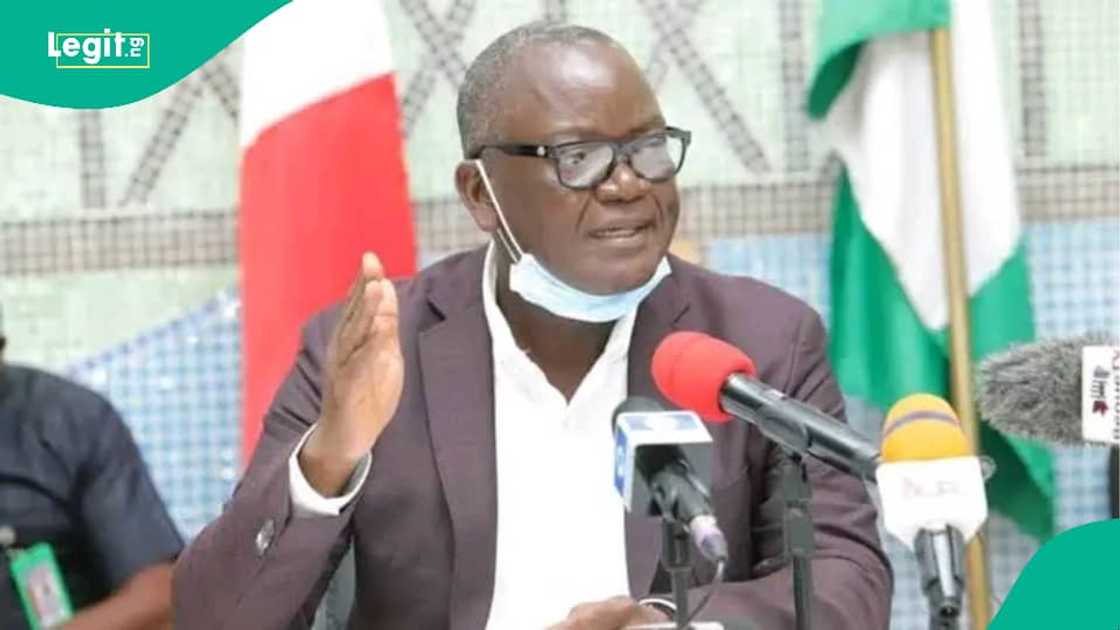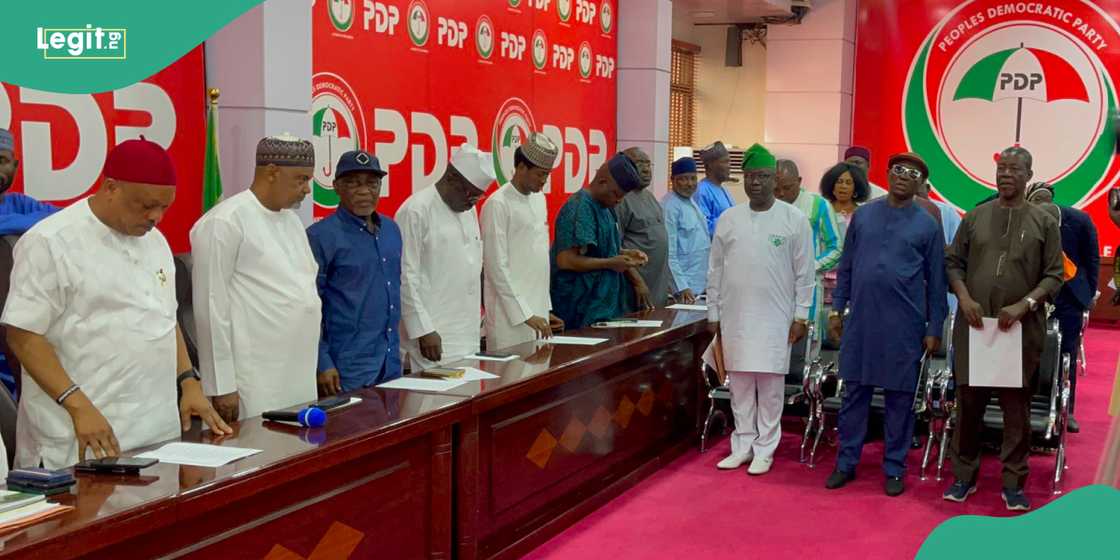As Nigeria edges closer to its 2027 general election, internal negotiations and power dynamics within the Peoples Democratic Party (PDP) are already coming to the fore. Recent developments indicate the party is determined to keep its national chairmanship rooted in the northern region—an action that’s sparking conversations both within political circles and among everyday citizens across Nigeria and West Africa.
The current occupant of the PDP’s national chairmanship, Umar Damagum, hails from Yobe State in the northeast. His tenure, however, is widely expected to end in November, paving the way for new leadership. Discussions within Nigeria’s largest opposition party have grown intense about who should succeed him, especially as the party gears up for what could be a fiercely contested 2027 national election.
Recent reports emphasize the strategic nature of this decision. Whoever emerges as the PDP’s chair will play a central role in the party’s presidential campaign—shaping not just campaign tactics but the very selection process for 2027 presidential candidates. This is seen as a pivotal moment, as internal party cohesion and effective leadership will be critical for the PDP’s performance at the polls.
Names of potential contenders are already swirling. Key figures include Ibrahim Shekarau, former governor of Kano State; Samuel Ortom, immediate past governor of Benue State; and Gbenga Olawepo-Hashim from Kwara State. These individuals represent diverse blocs within the PDP, each with its own vision and set of backers wanting to influence the party’s trajectory.
Every candidate reflects rival interests, regional calculations, and the broader challenge facing the PDP: finding unity in a party sometimes divided by its formidable reach and various power centres.
One prominent party chieftain associated with the influential G-5 group (made up of former governors wielding considerable clout) confirmed that while talks on micro-zoning—the practice of allocating party offices to specific subregions—are ongoing, no definitive decision has been made yet.
When pressed about whether a final agreement had been achieved, he simply stated:
“No. Positions have not been micro-zoned yet. On a personal note, my leader (Ortom) has also decided to throw his hat in the ring for national chairmanship position, so I have stood down my bid for the same position.”
A senior party member, actively engaged in these meetings and negotiations, shared insights about his efforts to build bridges and consolidate alliances across different northern states. Such groundwork is considered essential in anticipation of a micro-zoning decision, should the party decide to designate the chairmanship to a specific northern zone.
He elaborated:
“I’ve already started. I’ve been to about eight states so far. It is not just my ambition, it is also part of the national chairmanship campaign.”
Another party insider explained that the lack of a clear micro-zoning formula has heightened competition and left the chairmanship race open—and unpredictable. With ambitions running high and various factions pushing for their preferred candidates, this uncertainty is creating substantial anxiety within the party hierarchy.
As the PDP delays settling these internal questions, murmurs of frustration are beginning to surface. Some members caution that ongoing indecision might lead to defections to rival parties, or undermine the party’s organizational strength ahead of the 2027 elections—a scenario that PDP strategists are keen to avoid.
PDP chairmanship aspirants
1) Ibrahim Shekarau (Northwest)
A familiar name in Nigerian politics, Shekarau served two consecutive terms as governor of Kano State, first winning office in 2003 and retaining it in 2007. He went on to serve as Nigeria’s Minister of Education and was also a presidential aspirant in 2011. His political experience, especially in grassroots mobilization, positions him as a serious contender.
2) Samuel Ortom (Northcentral)
Ortom is recognized for his wide-ranging public service, having been minister of state for trade and investments, as well as acting minister for aviation during the Jonathan administration.

Photo credit: Benue State Government
Source: Facebook
Ortom’s governorship of Benue State, though initially under the APC banner in 2015, witnessed a notable shift when he returned to the PDP ahead of his 2019 re-election. His tenure concluded in May 2023, marking the transition to a new administration led by Reverend Father Hyacinth Alia, also of the opposition party.
3) Gbenga Olawepo-Hashim (Northcentral)
Olawepo-Hashim, once a deputy publicity secretary for the PDP, is known for his activist roots and his experience as a presidential aspirant. He is seen as a bridge between traditional grassroots PDP forces and the younger, reform-minded segment of the party.
PDP zones presidency to south
In a major step toward balancing national interests and maintaining internal equitability, the PDP has already zoned its presidential ticket to the southern region. This move was endorsed at the party’s National Executive Committee’s (NEC) 102nd convention in Abuja, where party stakeholders considered recommendations from a committee headed by Governor Douye Diri.
This zoning arrangement reflects PDP’s attempt to manage longstanding regional rivalries by ensuring meaningful representation from both the North and South on its ticket—a recurring challenge in Nigeria’s multiparty democracy.
According to party insiders, such balancing acts are crucial not only for electoral viability, but also for maintaining national unity, particularly in a period when political, ethnic, and economic tensions can easily spill into wider unrest.
What’s at Stake for 2027—and Beyond?
The 2027 election may still seem distant, but the groundwork laid today—especially on leadership, zoning, and internal party discipline—will go a long way in shaping the outcome. For ordinary Nigerians, PDP’s choices could determine the quality of the political opposition and provide much-needed checks and balances in government.
Observers in Ghana, West Africa, and beyond are watching, knowing that PDP’s stability or lack thereof could send ripples across the region. The party’s choice of chairman, as well as its stance on zoning, will influence voter faith not just in the PDP, but in multiparty democracy as a whole.
Ultimately, the biggest question—both for the PDP and Nigerian democracy—remains: can these internal negotiations result in a united front capable of providing a strong electoral challenge in 2027, or will prolonged indecision lead to fragmentation and weakened opposition?
What do you think about the PDP’s internal tussle and plans for 2027? Who do you believe can best steer the party through this critical period? Share your thoughts and join the conversation!
Have a unique perspective on Nigerian or West African politics, or a story about your experience with the elections? We’d love to hear from you! Reach out to have your voice featured or to discuss story submissions and sales:
Email us at story@nowahalazone.com
For questions or support, write us at support@nowahalazone.com.
Do you have business, policy, or news tips to share? Let’s keep the conversation going online. Follow us for real-time updates, exclusive polls, and in-depth analysis:
Facebook |
X (Twitter) |
Instagram
We welcome your comments—drop them below! What’s your prediction for 2027: unity or further splits for the PDP?










